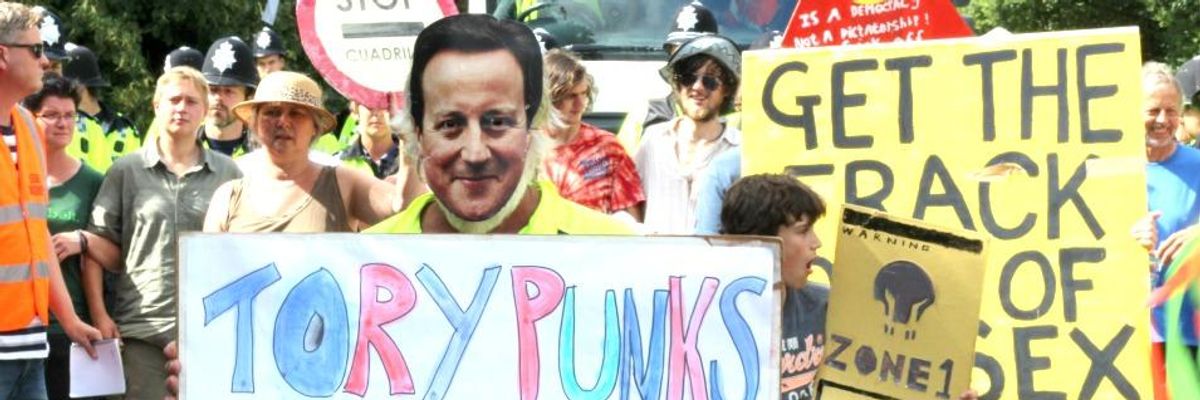Critics of fracking in the United Kingdom assailed the British government on Monday for their heavy-handed censorship of an internal government report on the impacts of the shale oil and gas drilling technique.
The draft government report, titled Shale Gas Rural Economy Impacts, published by the Department of Environment, Food & Rural Affairs (or Defra), has information redacted 62 times in just 13 pages.
The censored sections include eight from the executive summary, four from the chapter on economic impacts, four from the section on social impacts, and 17 from the analysis of the impact on local services. Though the report still contains information regarding the negative impact on house prices in fracked areas, there is almost no visible mention of the environmental impacts of fracking or fracking waste.
Following the release of the censored report, Green Party Member of Parliament (MP) Caroline Lucas told BBC's Radio 4 Today that the "number of redactions would be almost comical if it weren't so concerning."
"I think the only conclusion you can draw by looking at this report is that the government has something to hide and I think we need to know what it is," Lucas said.
"The issue is, the government is trying to railroad through fracking in the face of huge public opposition," she continued.
"The issue is, the government is trying to railroad through fracking in the face of huge public opposition."
--Caroline Lucas, Green Party MP
Roughly 1,000 protesters are expected to set up camp at a drilling operation run by UK fracking giant Cuadrilla outside Blackpool in north west England this week following the success of protests last summer which shut down Cuadrilla's drilling operations in Balcombe.
And in June, widespread outcry and protests followed the announcement by Prime Minister David Cameron that the government was advancing a controversial fracking law which permits drilling for shale gas under people's homes without permission.
The censored report was released in response to a request under the Environmental Information Regulations, which grant similar access to government information as the Freedom of Information Act or FOIA. In a letter accompanying the report, dated July 28, a Defra spokesperson--whose name was also crossed out in the letter--writes that the information is withheld because it "relates to the formation of government policy," and that full disclosure of the "potential impacts and scenarios around the development of the shale gas industry [...] could close down discussion."

